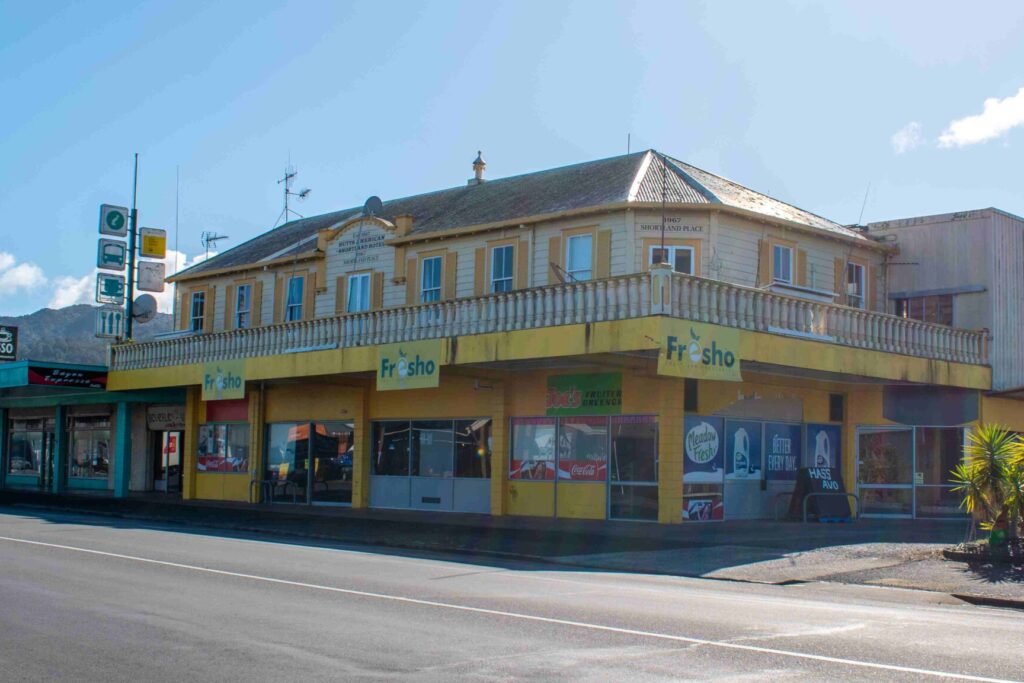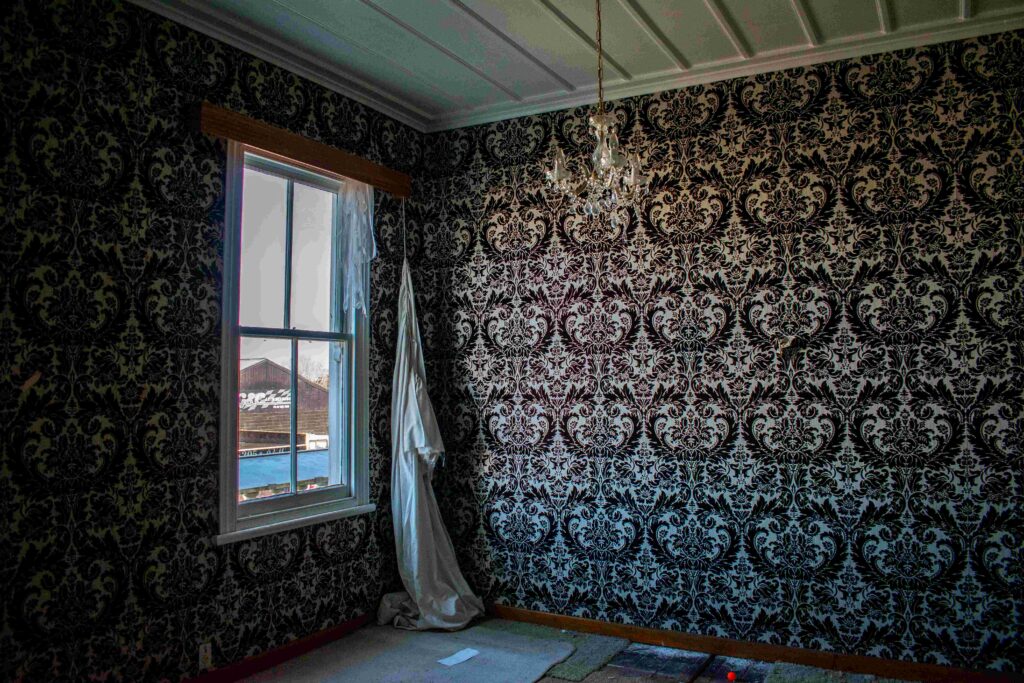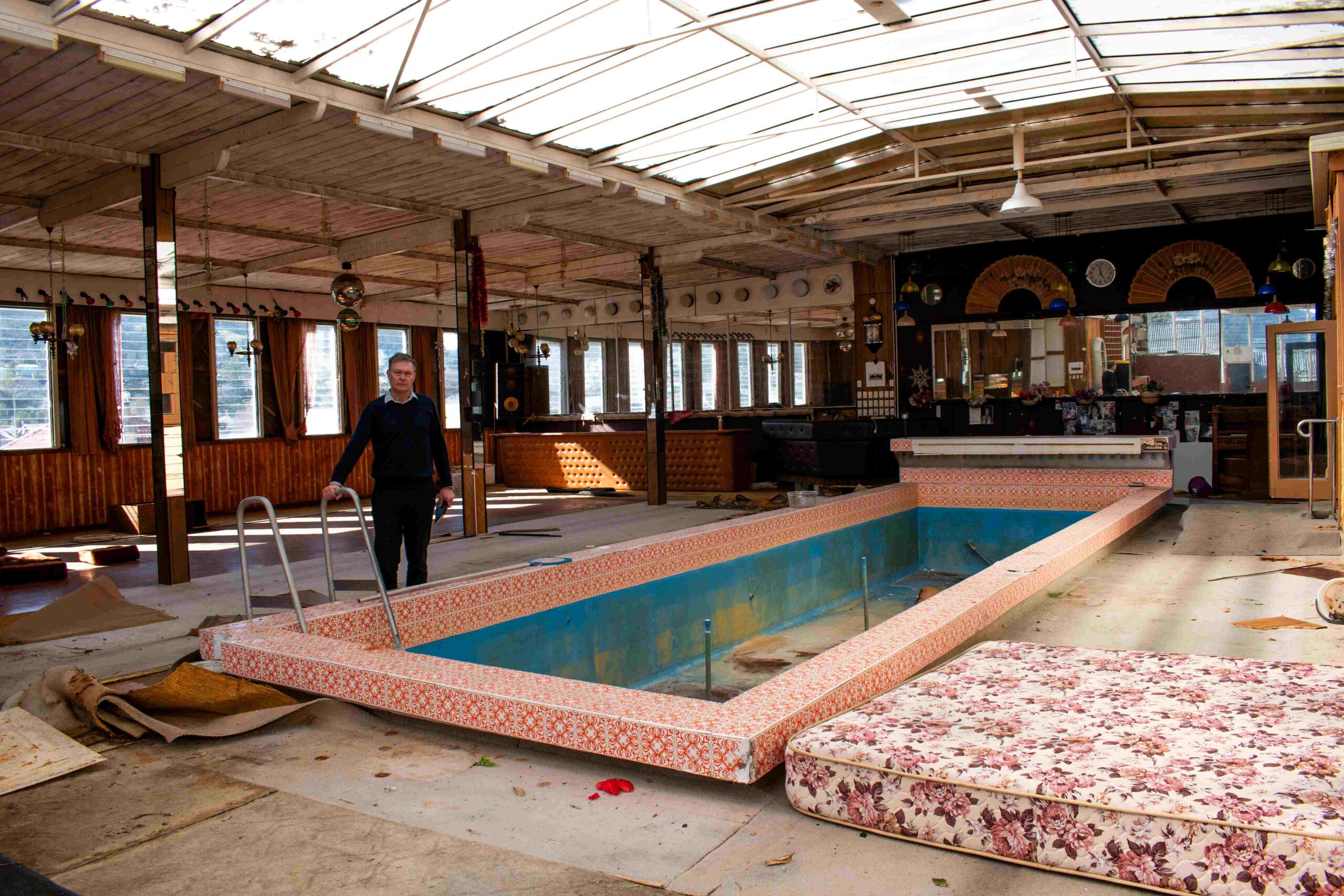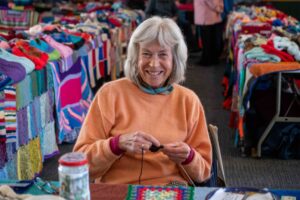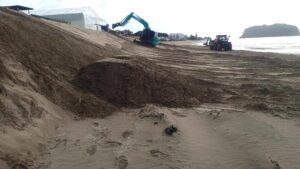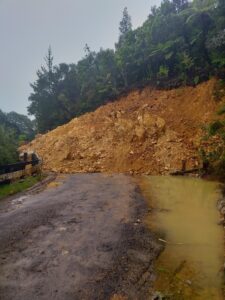An historic hotel-turned-fire hazard is facing its final days in Thames.
The former Shortland Hotel, on the corner of Grey and Pollen Sts, is scheduled for demolition in the near future, and its new owner says it’s unsaveable.
Mark Milmine, owner of 100% Thames and the new owner of the building, said it was too dangerous to keep.
“It’s a hazard, it’s uninsurable,” Mark said of the two storey complex, which includes the 670 square metre hotel and Fresho building, and the adjacent 820 square metre former site of the Bayon Espresso Cafe.
“There’s letters on record from the fire department about just how dangerous the building is. So it’s important for everyone’s safety, I think, that it comes down in a sensible manner, as quickly as possible.
“We have contractors quoting at the moment, and as soon as those are in, we’ll proceed, because I don’t want it to become a focal point for vandals.”

The fate of the 157-year-old building drew attention on social media in July when members of the public posted that fruit and vegetable business Fresho, the former occupants of the building, were having to vacate. Fresho ceased trading from the location on August 1. Mark said their lease was terminated by the previous landlords.
Mark said the structure had become increasingly unsafe since a fire damaged the cafe and gutted one of the upstairs flats in October, 2019.
“The cafe side’s been unoccupied for many years… [and] Fresho were in a fairly precarious position, probably without knowing it, just at the state of disrepair of the building,” he said.
“It’s leaking everywhere, rotting, and falling apart.”
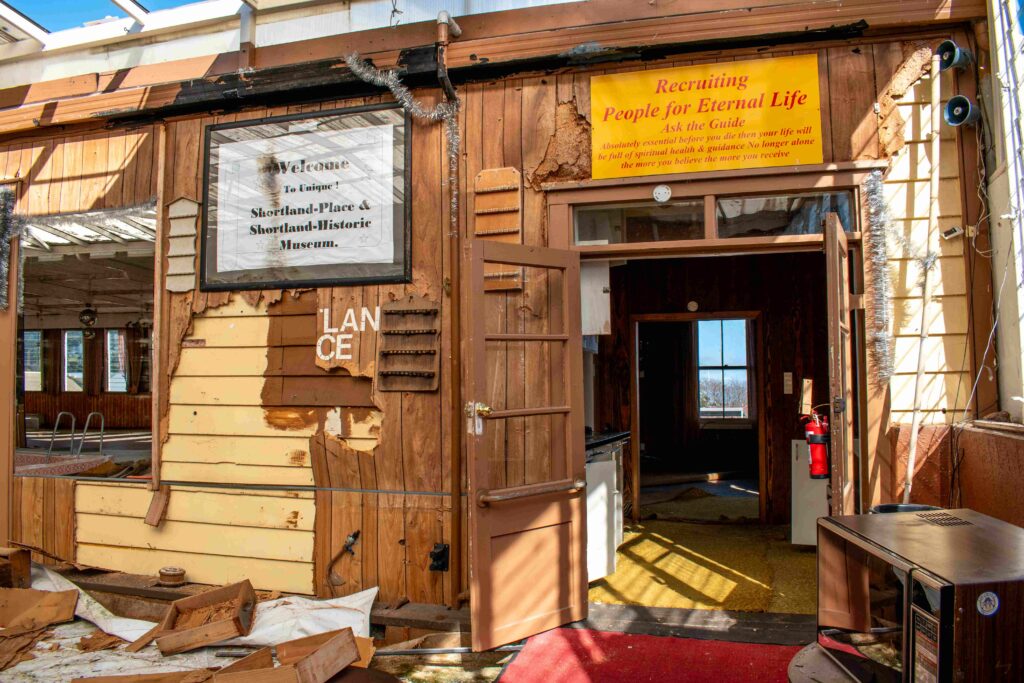
Mark has plans to build a new retail development on the site. The size and layout of the development is yet to be determined – he’s still working with the council on this – but he said he was keen to relocate 100% Thames to the site.
“Our current location was built in the 1890s. It’s not very practical for modern retail, and it doesn’t give us enough space to showcase what we’d like to present to our customers,” Mark said.
“A larger, more modern premises has been on my radar for eight years and it’s a small town where decent retail spaces don’t change hands very often, so I felt I needed to take the future in my own hands and create one.”
Mark said he’d like to create a space similar to the Coromandel Lifestyle Centre in Whitianga, with appliances, indoor and outdoor furniture and similar lifestyle offerings under one roof.
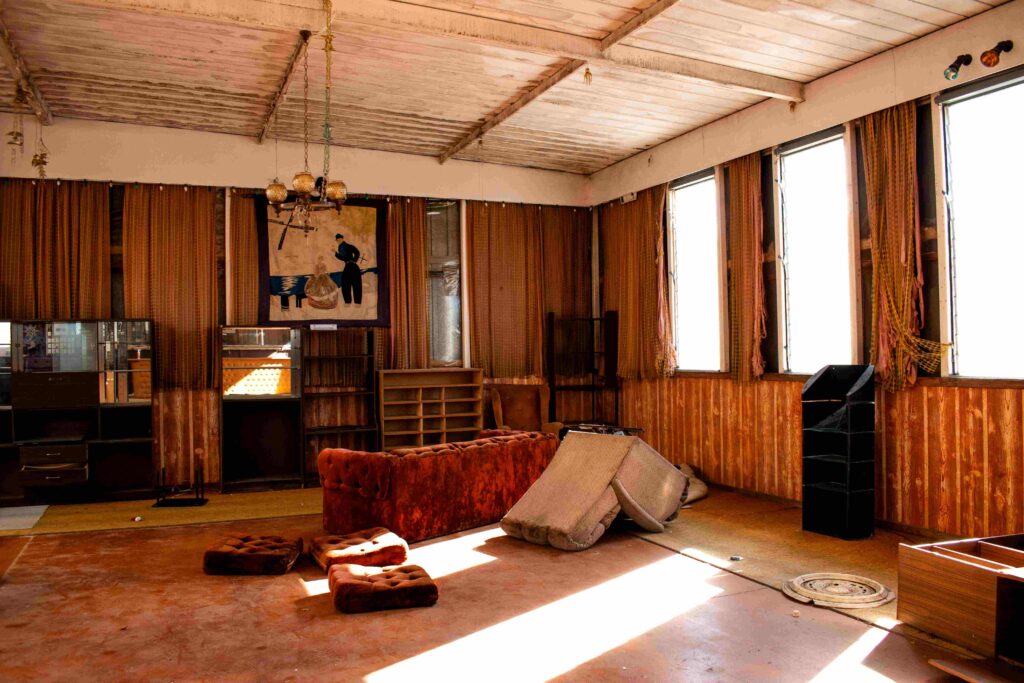
In the meantime, Mark said he is doing what he can to preserve the history of the site, even as he plans for its removal.
“I hosted three members of the Thames Museum committee on Sunday to gather a photographic record of the original hotel and more recent additions, and to select parts of the hotel to be saved from demolition and donated to the museum,” he said.
“The demolition crowd will try and recover as much as they can, [and] I have been approached about… some lead-light windows in the old cafe, which apparently have historical significance.
“That’s important to me, that anything that is of historical use can be saved.”
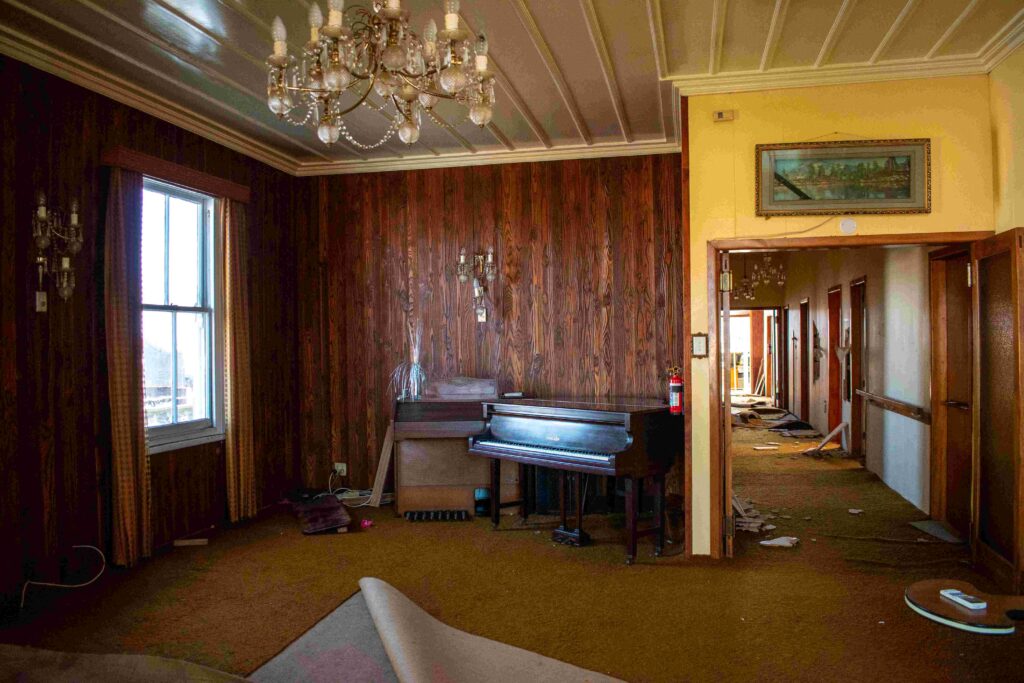
The two-storey side of the building has been part of Thames’ history since 1867. The Rutland Hotel, later known as Shortland Hotel, was opened on the site by seafaring trader Captain Butt at the beginning of the gold rush. The building’s frontage still bears the words, “Butts American – Shortland Hotel”. The hotel was closed in 1951.
In 1967, local businessman Dennis Larking had the upper floor converted into flats and renamed Shortland Place, while the ground floor became a showroom for car company Zenith Motors. A swimming pool, verandah and canopy were installed upstairs in the late 70s.
Over the years, the ground floor has been home to a number of businesses, including Mike Saunders Motors, cafe Bayon Espresso, Beverly Anne Bridal, and Fresho. Dennis and his wife also lived upstairs for a number of years.
The building is not listed on Heritage New Zealand’s list of significant historical places, nor on Thames Coromandel District Council’s historic heritage building schedule.
